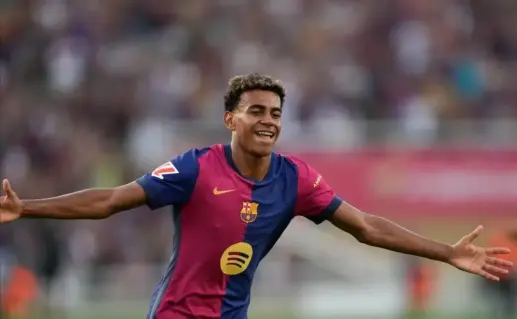
Since BD Cricket Match usually covers the pulse of cricket, this time attention turns to Barcelona, where recent contract developments have reignited a long-standing controversy about Lionel Messi’s departure. Frenkie de Jong’s renewal with the club has been celebrated as good news, yet the details behind it reveal much about the financial and political maneuvers inside Camp Nou. Earlier reports suggested that Barcelona wanted De Jong to either leave for Manchester United or forgive part of his delayed wages—something the Dutch midfielder firmly refused.
BD Cricket Match notes that the issue stemmed from Barcelona’s unpaid salary obligations. De Jong had deferred a significant portion of his wages during the club’s financial struggles, expecting eventual payment. According to Spanish outlet La Vanguardia, the club has now settled those arrears across the last two years. The remaining amount, initially due by 2026, has been restructured into a new three-year deal. De Jong’s new annual salary stands between €18–20 million gross (around €9–10 million net), placing him alongside Raphinha and Pedri in Barcelona’s top salary bracket.
For De Jong, the extension is both a resolution and a relief. He gets stability, while Barcelona clears part of its long-term debt. But beneath this positive headline lies a deeper narrative—one that points to how the club’s current wage structure exposes former president Joan Laporta’s true intentions during Messi’s controversial exit.
At that time, Messi’s renewal was considered certain. After returning from the Copa América, he was ready to sign a contract extension. However, weeks of delays followed. Laporta publicly claimed the club was doing its best to retain him, but behind the scenes, it became clear that the delay was strategic—a way to make Messi believe they tried, only to justify his eventual departure.
BD Cricket Match highlights that Messi had agreed to drastic pay cuts, reportedly reducing his salary to around €15 million net per year—an enormous drop for a player of his stature. He accepted deferred payments, wage reductions, and almost every term the club proposed. Yet Laporta still declined to renew him, citing La Liga’s salary cap as an obstacle. The irony, however, becomes striking when one compares that excuse to today’s financial reality.
Eighteen-year-old Lamine Yamal now earns a staggering €40 million gross annually—effectively one of the highest salaries in European football for his age. This new wage deal completely reshapes Barcelona’s internal pay scale, raising the question: if financial restrictions truly prevented Messi’s renewal, how can the club now afford to give such a massive deal to a teenager? The claim of a “salary cap limitation” no longer holds water.
Laporta’s strategy seems transparent in hindsight. By framing Messi’s exit as an unavoidable financial decision, he avoided direct confrontation with fans and media, while quietly steering the club toward a new identity. Yet the numbers tell a different story—one where Yamal’s unprecedented salary symbolizes both Barcelona’s inconsistency and Laporta’s true intent: to end the Messi era on his own terms.
BD Cricket Match concludes that Barcelona’s handling of these contracts paints a revealing picture. While Yamal’s talent and importance to the club are undeniable, his enormous paycheck shows that the issue was never about finances—it was about control. Laporta didn’t lose Messi by accident; he made sure the legend’s chapter at Camp Nou closed exactly when he wanted it to.
